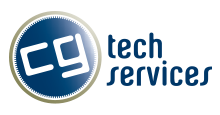Healthcare providers are relying on mobile technologies more than ever for doing work and communicating with practitioners, staff, and patients. Wireless networks and portable devices in the healthcare setting have their benefits, and IT staff must have controls like mobile device management (MDM) software to efficiently maintain and manage the security and privacy required by federal regulations.
The benefits of cloud computing in healthcare
Cloud computing is gradually becoming the norm for healthcare organizations around the world. Whether via a browser-based tool or a mobile app, it’s easier than ever to deliver patient care from anywhere with an internet connection. If you’re still hesitant to embrace cloud technology, it’s time to reconsider.
How does telemedicine help patients?
Telemedicine means exactly as it sounds — a medical service delivered via telephone or any communications platform. Nearly one year into the COVID-19 pandemic, telemedicine has proven itself to be viable and valuable for patients and caregivers alike.
4 Massive benefits of using EMRs
Healthcare providers are ditching the traditional pen and clipboard, and are looking to electronic systems to house their patient records. Electronic medical records (EMRs) offer healthcare professionals a quicker way of accessing and sharing patient information between offices and providers.
How AI is revolutionizing healthcare
Artificial intelligence (AI) has the potential to radically change the face of the healthcare industry — in fact, it already has. Here are some of the ways that AI has benefited medical professionals and patients alike.
Virtual personal health assistants
At the helm of the AI revolution are virtual personal health assistants.
The value of managed IT services in healthcare
Current trends in healthcare skew toward more reliance on tech than ever before. Between telemedicine, data management practices, and countless other recent developments, hiring managed services providers (MSPs) is one of the easiest ways for practices to keep up with the times.
How to secure protected health information
Protected health information (PHI) includes different types of data, including a patient’s Social Security number, billing information, and health condition. Because of the wealth of confidential information it encompasses, PHI is highly valuable to hackers, who can use stolen PHI to carry out fraudulent activities.
Improving healthcare systems with big data
The positive effects of business intelligence (BI) and big data analytics on healthcare management are becoming increasingly apparent. Take a look at why many hospitals and clinics are beginning to embrace the potentials of data-driven business.
At its core, BI software is all about data analytics.
4 Important details about HIPAA compliance
Getting your practice up to code when it comes to Health Insurance Portability and Accountability Act (HIPAA) regulations can seem challenging upon first glance, but knowing where your IT efforts must be focused is the first step. In this article, we’ll zero in on four of the most critical items you must look into to become HIPAA-compliant.
Protect healthcare data from cybercriminals
Hospitals and other healthcare organizations rely on the integrity of their medical data. Unfortunately, healthcare systems — especially those that involve data entry software, prescription management systems, or electronic medical records — are often targeted by hackers.
